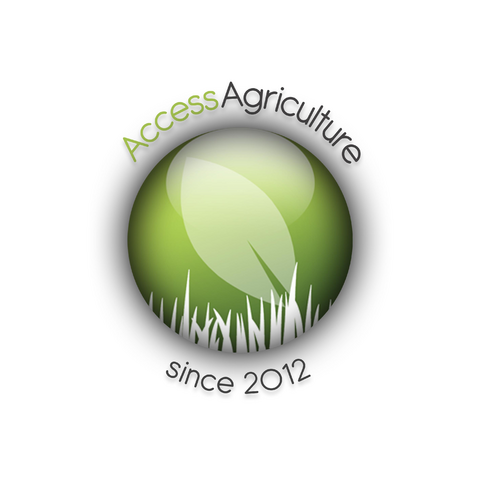
16.1K
Downloads
474
Episodes
Access Agriculture is a non-profit organisation that showcases agricultural training videos in local languages. We strive to promote the transition towards agroecology and organic farming across the global South. To impact on rural livelihoods, please explore Access Agriculture.
Access Agriculture is a non-profit organisation that showcases agricultural training videos in local languages. We strive to promote the transition towards agroecology and organic farming across the global South. To impact on rural livelihoods, please explore Access Agriculture.
Episodes
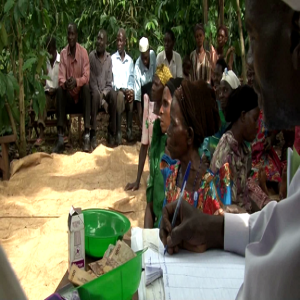
Thursday Sep 24, 2020
Coffee: group organisation (Summary)
Thursday Sep 24, 2020
Thursday Sep 24, 2020
For years coffee farmers in Uganda have been at a disadvantage, but over the past 10 to 15 years some incredible changes have been seen - thanks to farmers organising themselves into groups. By working together they have increased the quality of their coffee crop and received better prices, making it a sustainable and worthwhile business. If the group is run well there are many positives, with members wanting to contribute and not let down their fellow farmers.
Download the full audio podcast in different languages at: www.accessagriculture.org
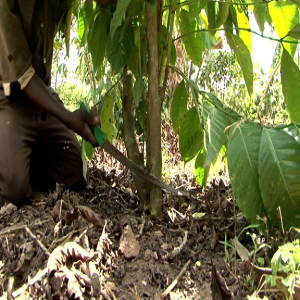
Thursday Sep 24, 2020
Coffee: stumping & pruning (Summary)
Thursday Sep 24, 2020
Thursday Sep 24, 2020
Managing coffee bushes well can make the difference between an average income and earning a good living. Stumping coffee bushes on a regular basis as part of your overall management plan, and pruning them each year, can help boost yields and income.
Download the full audio podcast in different languages at: www.accessagriculture.org
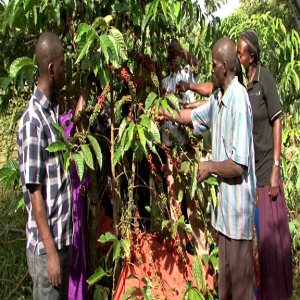
Tuesday Sep 22, 2020
Coffee: picking & drying (Summary)
Tuesday Sep 22, 2020
Tuesday Sep 22, 2020
Good quality coffee production does not happen by itself – it is a combination of the many aspects of managing coffee plots, and all must be done well if you want to maximise your returns. This audio podcast, looks at two aspects, the first is picking coffee from the bushes and the second is how to maintain quality to maximise profit through good drying and storage.
Download the full audio podcast in different languages at: www.accessagriculture.org
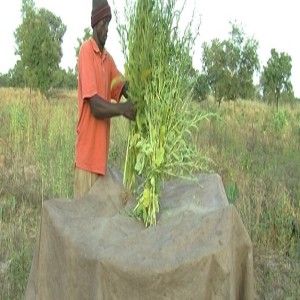
Tuesday Sep 22, 2020
Harvesting and storing sesame (Summary)
Tuesday Sep 22, 2020
Tuesday Sep 22, 2020
Sesame is easy to grow. But poor harvesting, threshing and storage can decrease its quality. When sesame is too ripe, the seed capsules split open and release their seeds. So you lose lots of seeds and lots of money. Stones, sand, and other dirt can easily mix with sesame seeds and affect the price. In this audio podcast, we will learn how to harvest, thresh, and store sesame to ensure good quality.
Download the full audio podcast in different languages at: www.accessagriculture.org
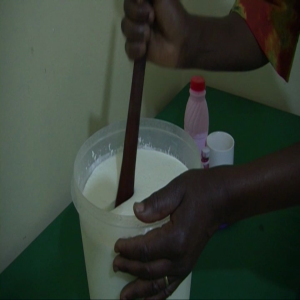
Tuesday Sep 22, 2020
Making yoghurt at home (Summary)
Tuesday Sep 22, 2020
Tuesday Sep 22, 2020
In this audio podcast we learn the important steps needed to produce good quality yoghurt, whether for home consumption or for sale.
Download the full audio podcast in different languages at: www.accessagriculture.org
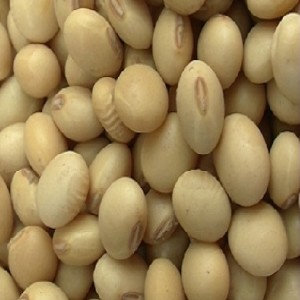
Monday Sep 21, 2020
Harvesting and storing soya bean seed (Summary)
Monday Sep 21, 2020
Monday Sep 21, 2020
Soya bean seed that is poorly harvested and poorly stored loses its ability to germinate because the moisture and heat kills the living part of the seed. Wet or moldy seeds will rot during storage. In this audio podcast, we'll talk about harvesting soya bean seed, drying, winnowing, sorting and storage.
Download the full audio podcast in different languages at: www.accessagriculture.org
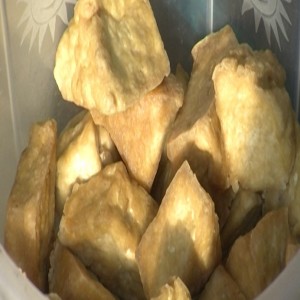
Monday Sep 21, 2020
Making soya cheese (Summary)
Monday Sep 21, 2020
Monday Sep 21, 2020
In this audio podcast, we will see how to make good quality soya cheese. For good quality soya cheese, there are six steps to follow: select, winnow and sort good quality grain; soak the soya beans in clean water that is frequently changed; grind the grain in a mill; extract the soya milk; cook the soya milk and collect the cheese.
Download the full audio podcast in different languages at: www.accessagriculture.org
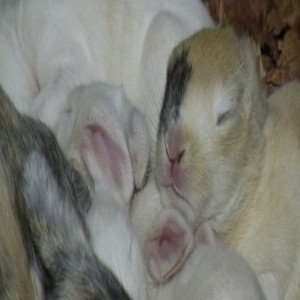
Monday Sep 21, 2020
Taking care of young rabbits (Summary)
Monday Sep 21, 2020
Monday Sep 21, 2020
After the rabbit has her babies, she needs to be properly managed. This means creating good conditions for the baby rabbits and giving the mother some time to recover before breeding her again.
Download the full audio podcast in different languages at: www.accessagriculture.org

Thursday Sep 17, 2020
Intercropping pineapples (Summary)
Thursday Sep 17, 2020
Thursday Sep 17, 2020
In the wider space between the double rows of pineapple, you can grow beans or groundnuts during the first year. This improves the soil. Most farmers cut down all the trees to establish pineapple gardens. But they are wrong. In fact, pineapples grow best and give better quality fruit when there is some shade. Apart from bananas, you can also plant a few trees in between your pineapples to provide some shade.
Download the full audio podcast in different languages at: www.accessagriculture.org
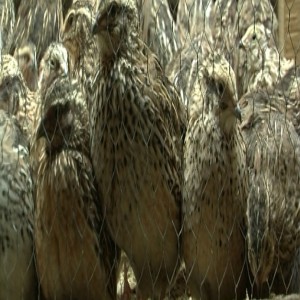
Thursday Sep 17, 2020
Quail housing (Summary)
Thursday Sep 17, 2020
Thursday Sep 17, 2020
Many farmers in developing countries keep some chickens, either small numbers or large numbers. However, another type of poultry farming is becoming rapidly popular, namely quail farming.
Download the full audio podcast in different languages at: www.accessagriculture.org
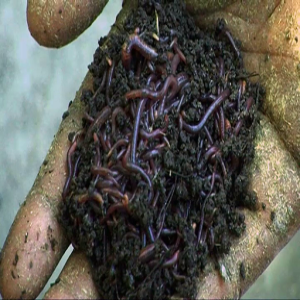
Thursday Sep 17, 2020
The wonder of earthworms (Summary)
Thursday Sep 17, 2020
Thursday Sep 17, 2020
Earthworm compost can increase soil fertility and help increase the production of vegetables in poor and salty soils. Here we will learn about a fast and easy way to make earthworm compost on a small piece of land.
Download the full audio podcast in different languages at: www.accessagriculture.org
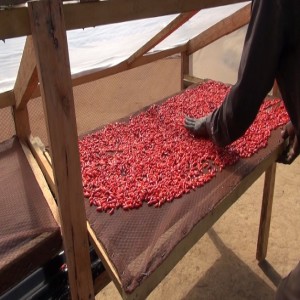
Wednesday Sep 16, 2020
Solar drying of chillies (Summary)
Wednesday Sep 16, 2020
Wednesday Sep 16, 2020
When chillies remain moist, moulds develop and the chillies will go bad. Some moulds produce a poison, called aflatoxin, which is toxic to people. To speed up drying and to dry your food hygienically you can use a solar dryer that uses the heat of the sun to dry fruits and vegetables. Solar dryers come in many shapes and sizes, but the principles stay the same. In this audio podcast, we will learn how to make and use a simple solar dryer to dry chillies.
Download the full audio podcast in different languages at: www.accessagriculture.org
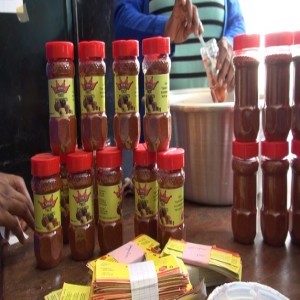
Wednesday Sep 16, 2020
Making chilli powder (Summary)
Wednesday Sep 16, 2020
Wednesday Sep 16, 2020
It is very important to have a product that doesn’t change, that is of the same quality, the same taste, the same colour and that is well presented.
Download the full audio podcast in different languages at: www.accessagriculture.org
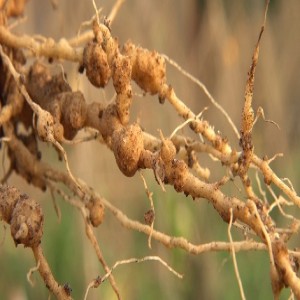
Wednesday Sep 16, 2020
Managing vegetable nematodes (Summary)
Wednesday Sep 16, 2020
Wednesday Sep 16, 2020
Nematodes are dreadful worms that live in the soil and in the roots of many different crops and weeds. Nematodes are easier to prevent than to control. The secret is to: grow healthy seedlings; destroy all sources of nematodes in and near your vegetable field; rotate with crops that are resistant to nematodes; and avoid introducing nematodes from other fields. Farmers in southern Benin tell us how to control nematodes.
Download the full audio podcast in different languages at: www.accessagriculture.org
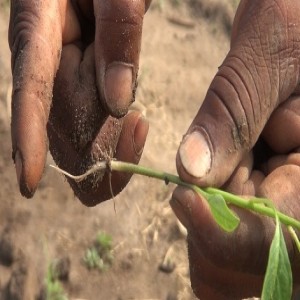
Tuesday Sep 15, 2020
Transplanting chillies (Summary)
Tuesday Sep 15, 2020
Tuesday Sep 15, 2020
This audio podcast features the importance of good planning and knowledge. We can reduce losses by following good practices when installing the seedbed, preparing the field and transplanting chilli seedlings.
Download the full audio podcast in different languages at: www.accessagriculture.org
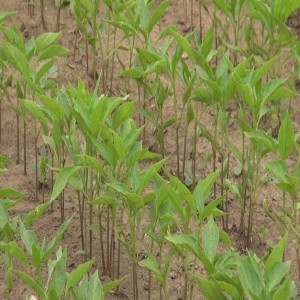
Tuesday Sep 15, 2020
Making a chilli seedbed (Summary)
Tuesday Sep 15, 2020
Tuesday Sep 15, 2020
Use quality seeds in a seedbed of one meter wide. Make furrows about every 15 cm. Do not sow too many seeds too close together or the seedlings will be too tall and weak and they will break easily when transplanted. Protect the seedbed from the hot sun and hard rains by covering it with straw, palm leaves or other mulch. Protect the seedlings from pests and animals by putting an insect net over your seedbed. Transplant the seedlings at the right stage. Strong and healthy seedlings are the best start for a healthy and productive crop.
Download the full audio podcast in different languages at: www.accessagriculture.org
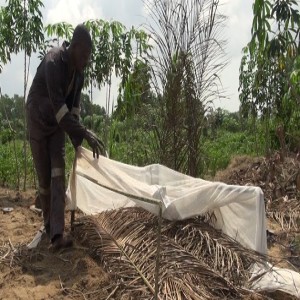
Tuesday Sep 15, 2020
Insect nets in seedbeds (Summary)
Tuesday Sep 15, 2020
Tuesday Sep 15, 2020
Grasshoppers and snails can be a serious problem for any vegetable seedbed as they chew the tender stems of seedlings. Caterpillars can also cause damage, but more so on tomato and cabbage than on chilli.To protect their young crops many farmers use pesticides. While pesticides are expensive, they are also dangerous for the health of farmers, consumers and the environment. You can protect your seedlings by putting an insect net over them.
Download the full audio podcast in different languages at: www.accessagriculture.org
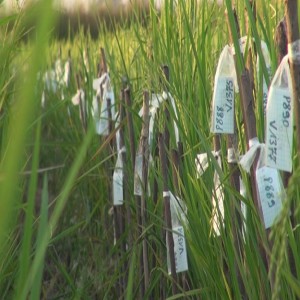
Monday Sep 14, 2020
Selecting new rice varieties (Summary)
Monday Sep 14, 2020
Monday Sep 14, 2020
Participatory varietal selection or PVS is a method that allows different stakeholders to get involved in identifying constraints and selecting new varieties out of the hundreds developed by rice breeders. During three years multiple stakeholders are involved in mother trials, baby trials and tasting tests.
Download the full audio podcast in different languages at: www.accessagriculture.org
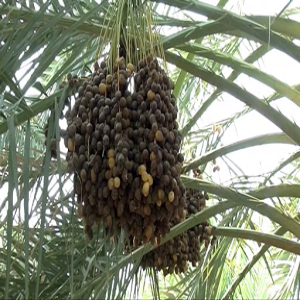
Friday Sep 11, 2020
Date palm management (Summary)
Friday Sep 11, 2020
Friday Sep 11, 2020
Some practical advice on the management of date palms with suggestions for reducing humidity levels, trimming, intercropping and weeding.
Download the full audio podcast in different languages at: www.accessagriculture.org
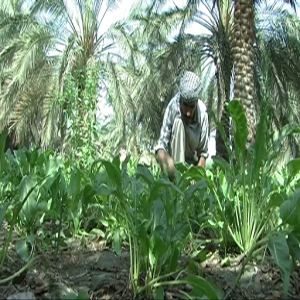
Friday Sep 11, 2020
Date palm IPM (Summary)
Friday Sep 11, 2020
Friday Sep 11, 2020
This audio looks at various modern methods of integrated biological control in the fight against the pests of palm trees. It features the use of intercropping, light traps and environmentally-friendly organic pesticides.
Download the full audio podcast in different languages at: www.accessagriculture.org
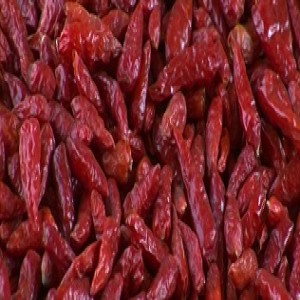
Friday Sep 11, 2020
Drying and storing chillies (Summary)
Friday Sep 11, 2020
Friday Sep 11, 2020
Farmers in southern Malawi have come up with their own clever ways to harvest, dry, grade and store their chillies. To remove the pain in their hands after harvesting the chillies, they use various techniques. The biggest enemy of stored chillies is moisture, as this may result in your chillies getting mouldy and developing a poisonous product, called aflatoxin. Therefore avoid keeping your chillies in a polythene sack as moisture can build up in the sack.
Download the full audio podcast in different languages at: www.accessagriculture.org
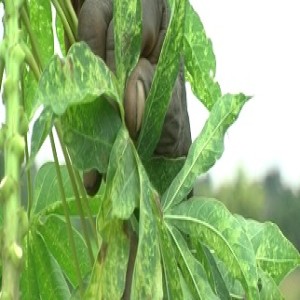
Friday Sep 11, 2020
Cassava mosaic virus (Summary)
Friday Sep 11, 2020
Friday Sep 11, 2020
The cassava mosaic virus disease is an important cassava disease which causes low yields. It can be recognised on the cassava leaves which have spots ranging from light green to yellow. The disease is given to the plant by the whitefly. This disease cannot be cured but it can be avoided. To prevent the cassava mosaic virus disease we must use cuttings which have not been attacked by the disease. Most of all, we must plant varieties which are resistant to the disease.
Download the full audio podcast in different languages at: www.accessagriculture.org
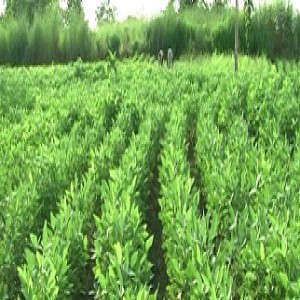
Friday Sep 11, 2020
Making pressed dates (Summary)
Friday Sep 11, 2020
Friday Sep 11, 2020
Dates have a short harvesting season, and must be consumed or processed immediately after harvest. Otherwise they will spoil and you won’t be able to store them. To be pressed, all the dates you use must have the same ripeness so that you can store them as long as you want. This audio podcast will also show the hygienic practices and preparations that must be done for a clean food product.
Download the full audio podcast in different languages at: www.accessagriculture.org
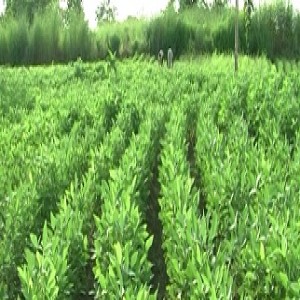
Thursday Sep 10, 2020
Soya sowing density (Summary)
Thursday Sep 10, 2020
Thursday Sep 10, 2020
To achieve the best density of soya bean plants in our field, we must take four precautions: 1. Use seeds that grow well; 2. Narrow the space between seedling rows and between holes; 3. Do not step on the planting holes of the field; and 4. Control the rodents that eat seeds and seedlings after sowing.
Download the full audio podcast in different languages at: www.accessagriculture.org
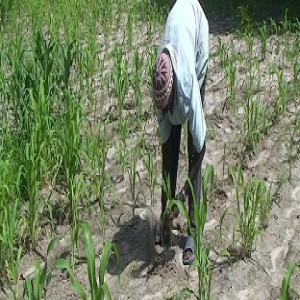
Thursday Sep 10, 2020
Sowing and thinning sorghum (Summary)
Thursday Sep 10, 2020
Thursday Sep 10, 2020
Increasing plant populations by reducing the planting distance is a key step to achieving a uniform crop stand and a high yield. On the other hand, when plants are too close to each other this can hamper good crop development. The plants will be thin and will be susceptible to diseases and pests such as the parasitic weed striga. In this video, we will learn about the best planting density for sorghum. We will understand what factors can affect crop establishment, and then see how thinning and transplanting can help to get a uniform crop stand and high yield.
Download the full audio podcast in different languages at: www.accessagriculture.org
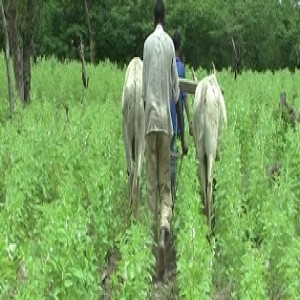
Thursday Sep 10, 2020
Row planting of sesame (Summary)
Thursday Sep 10, 2020
Thursday Sep 10, 2020
Row planting is very advantageous. When you sow sesame seeds in a row, you can thin the plants very well. When you thin the plants, the branches will multiply. You can count up to 20 pods on each branch, which is much more than broadcast sowing. When the plants are too close together, they produce only one or two pods; not many at all. For all these reasons it is good to plant sesame in rows.
Download the full audio podcast in different languages at: www.accessagriculture.org
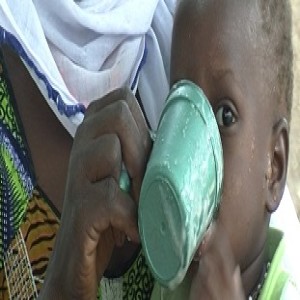
Thursday Sep 10, 2020
Enriching porridge (Summary)
Thursday Sep 10, 2020
Thursday Sep 10, 2020
Legumes such as cowpeas or soybeans are a source of protein, essential for building a child's muscles. Legumes also contain oil, which helps children gain weight. Fruits and vegetables contain many vitamins and minerals that are important for your child's development. Sour contains a lot of vitamin C, which promotes the absorption of iron.
Download the full audio podcast in different languages at: www.accessagriculture.org
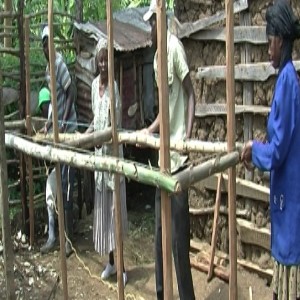
Thursday Sep 10, 2020
How to build a rabbit house (Summary)
Thursday Sep 10, 2020
Thursday Sep 10, 2020
Farmers in Kenya show us how they build a rabbit house using simple materials. Because rabbits do not sweat or pant to cool down, they will suffer in direct sun. It is therefore best to put a rabbit house in the shade. A raised house helps to protect the rabbits against rats and also allows the rabbit droppings to fall to the ground. As safari ants can harm baby rabbits, chase away the ants by burning a small piece of rubber and sprinkling salt. Better also destroy ant nests nearby the rabbit house. These and many other tips can help you in rearing rabbits, which is becoming more and more popular and can provide you a good income.
Download the full audio podcast in different languages at: www.accessagriculture.org
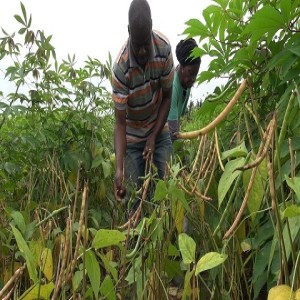
Wednesday Apr 29, 2020
Growing cassava on poor soils (Summary)
Wednesday Apr 29, 2020
Wednesday Apr 29, 2020
Farmers in Cote d’Ivoire show how they improve their cassava production and restore soil fertility. There are five things to do: use improved varieties that are resistant to the cassava mosaic virus; apply organic matter; apply small doses of mineral fertiliser; grow a legume in between our cassava; and plant the cassava in lines, leaving sufficient space between the lines.
Download the full audio podcast in different languages at: : www.AccessAgriculture.org
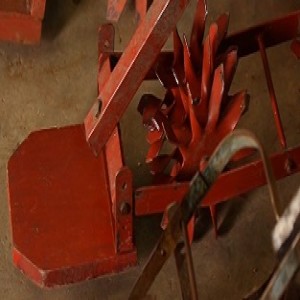
Wednesday Apr 29, 2020
Rotary weeder (Summary)
Wednesday Apr 29, 2020
Wednesday Apr 29, 2020
Effective weed management can increase yields by more than 50%, but usually takes a lot of time. As a farmer it is therefore worthwhile investing in labour-saving weed management tools. In this video you can learn how to control weeds in lowland rice using the rotary weeder.
Download the full audio podcast in different languages at: : www.AccessAgriculture.org
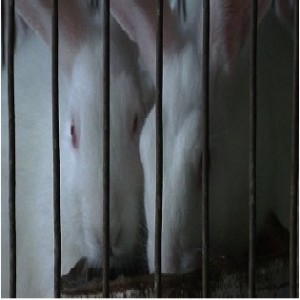
Wednesday Apr 29, 2020
Feeding rabbits (Summary)
Wednesday Apr 29, 2020
Wednesday Apr 29, 2020
Many producers raise rabbits because it requires relatively little space, little time and therefore lets you earn some money quickly. For the rabbit to grow well and multiply quickly you need to feed it well. Dry the wet fodder before giving it to the rabbit the next day. This will prevent the animal from getting diarrhea caused by parasites that are on the leaves that are wet from dew or rain. In addition, drying allows the forage to lose a little water. This will prevent the animal’s stomach from bloating. If possible, complement the fodder with concentrate feed. Concentrate feed is a mixture of food that gives rabbits protein, energy, minerals and vitamins.
Download the full audio podcast in different languages at: : www.AccessAgriculture.org
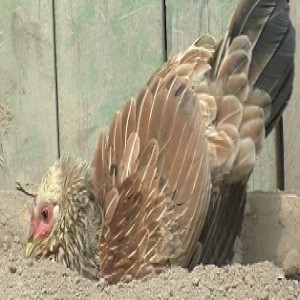
Wednesday Apr 29, 2020
Taking care of local chickens (Summary)
Wednesday Apr 29, 2020
Wednesday Apr 29, 2020
Provide a bed of wood shavings or dry grass to make it comfortable for the hens to lay their eggs. This helps to reduce moisture and decreases the chance of infestation by parasites. But these small parasitic insects are not the only problem. During their first few weeks the chicks are caged to protect them from predators and getting lost. These and other cheap and simple practices can help you raise healthy local chickens, feed your family and increase your income.
Download the full audio podcast in different languages at: : www.AccessAgriculture.org
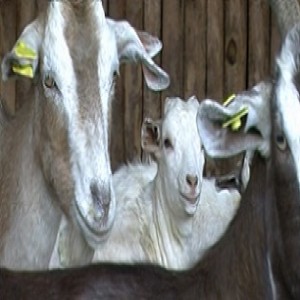
Wednesday Apr 29, 2020
Dairy goat feeding (Summary)
Wednesday Apr 29, 2020
Wednesday Apr 29, 2020
Goats eat just about anything. But when goats are kept tied or penned up, they need lots of water, a good mix of feed and enough of it. By giving them fodder every day, we can satisfy part of their needs in energy, proteins, vitamins, and minerals. Dry the harvested fodder for about three days before feeding it to the goats to avoid them getting diarrhoea. By drinking water dairy goats better digest the fodder and give more milk. Some plants also stimulate milk production more than others, as some Kenyan farmers explain.
Download the full audio podcast in different languages at: www.AccessAgriculture.org
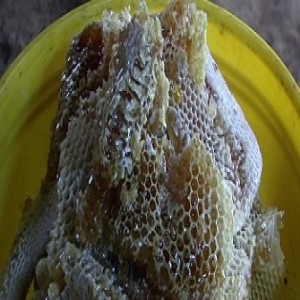
Wednesday Apr 29, 2020
Turning honey into money (Summary)
Wednesday Apr 29, 2020
Wednesday Apr 29, 2020
Traditionally, honey was sold in the comb, but nowadays most consumers prefer honey that is extracted from the comb. This processed honey is clean and ready to use, and can be stored over a longer period of time. To ensure that honey keeps its quality, you have to respect three basic rules: harvest only honey that is mature; maintain high hygienic standards during harvesting and processing; and ensure that all equipment and packaging containers are clean and dry.
Download the full audio podcast in different languages at: www.AccessAgriculture.org
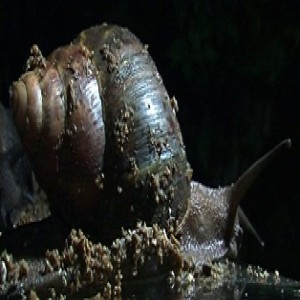
Wednesday Apr 29, 2020
Feeding snails (Summary)
Wednesday Apr 29, 2020
Wednesday Apr 29, 2020
The snail meat is good for you, and richer in protein, iron and calcium than beef - and even liver. It is especially beneficial for children, and women who are pregnant or breastfeeding. Managing a snail farm is easy and does not require a lot of resources or space. In addition, it does not require much time from the farmer. In this video we will see how farmers in southern Benin feed their snails in an enclosure.
Download the full audio podcast in different languages at: www.AccessAgriculture.org
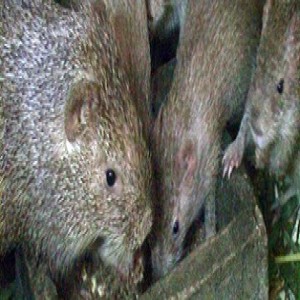
Wednesday Apr 29, 2020
Feeding grasscutters (Summary)
Wednesday Apr 29, 2020
Wednesday Apr 29, 2020
Grasscutter farming allows farmers to earn money while responding to the demand for meat without putting this species at risk. For successful rearing, you have to provide a proper habitat, monitor the animals carefully and provide a balanced diet. This video will look at how to feed grasscutters in captivity.
Download the full audio podcast in different languages at: www.AccessAgriculture.org
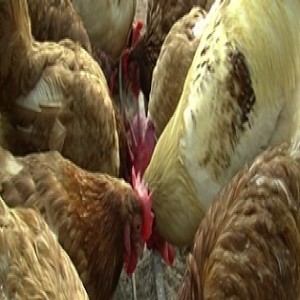
Wednesday Apr 29, 2020
Feeding improved chickens (Summary)
Wednesday Apr 29, 2020
Wednesday Apr 29, 2020
By giving improved chickens green feed every day, we can satisfy part of their needs. However, to increase their production it is best to provide concentrate feed that contains a mixture of grains, oil cake, bran and shells.
Download the full audio podcast in different languages at: www.AccessAgriculture.org
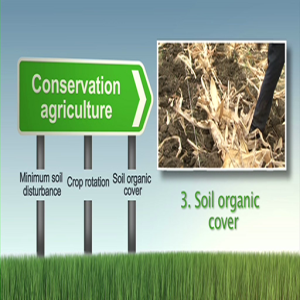
Friday Apr 17, 2020
SLM12 Conservation agriculture (Summary)
Friday Apr 17, 2020
Friday Apr 17, 2020
The main aim is to reduce costs and improve profitability. Soil health is improved as is soil moisture. Zambia is leading the way in Sub-Saharan Africa and this programme shows how the technique is practised.
Download the full audio podcast in different languages at: www.AccessAgriculture.org
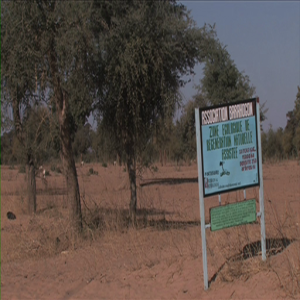
Friday Apr 17, 2020
SLM11 Farmers & pastoralists (Summary)
Friday Apr 17, 2020
Friday Apr 17, 2020
Examples of how the two communities can interact to benefit each other from Niger and Mali. From Mali the arrangements of the Barahogon Association are explained, including how disputes are resolved.
Download the full audio podcast in different languages at: www.AccessAgriculture.org
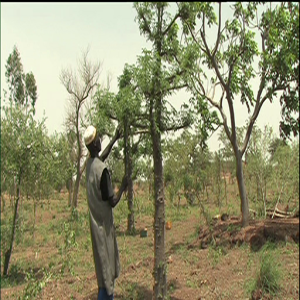
Friday Apr 17, 2020
SLM10 Managed regeneration (Summary)
Friday Apr 17, 2020
Friday Apr 17, 2020
Farmer managed natural regeneration (FMNR) has helped to "regreen" five million hectares of land in Niger after three decades of destruction. It is an effective way of reintroducing parkland agroforestry to help improve management of crops and livestock.
Download the full audio podcast in different languages at: www.AccessAgriculture.org
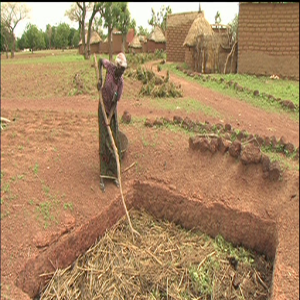
Friday Apr 17, 2020
SLM09 Fertility management (Summary)
Friday Apr 17, 2020
Friday Apr 17, 2020
Integrated soil fertility management is based on maximising the use of organic fertilizers, minimizing the loss of nutrients and optimizing the use of inorganic fertilizer. Microdosing and mulching are featured.
Download the full audio podcast in different languages at: www.AccessAgriculture.org
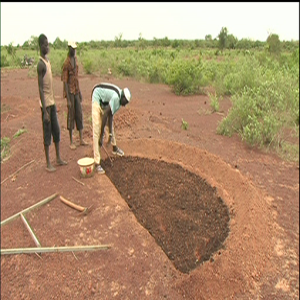
Friday Apr 17, 2020
SLM08 Parkland agroforestry (Summary)
Friday Apr 17, 2020
Friday Apr 17, 2020
Trees produce timber and firewood, but also fruit, pods, leaves and medicines for people and livestock. Some species help improve soil fertility and reduce local temperatures. The system supports crops and livestock.
Download the full audio podcast in different languages at: www.AccessAgriculture.org

Monday Apr 13, 2020
SLM07 Demi-lunes (Summary)
Monday Apr 13, 2020
Monday Apr 13, 2020
Demi-lunes (half-moons) are in the shaped of a semi-circle with the tips of the bunds on the contour. They come in a variety of sizes, which help with water harvesting in semi-arid areas. They help to improve soil fertility when manure or compost is added.
Download the full audio podcast in different languages at: www.AccessAgriculture.org
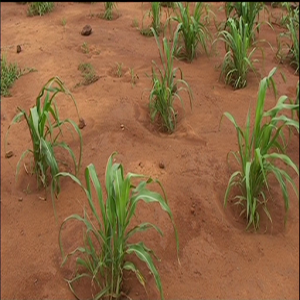
Monday Apr 13, 2020
SLM06 Zaï planting pits (Summary)
Monday Apr 13, 2020
Monday Apr 13, 2020
Zaï as they are known in Burkina Faso, or tassa in Niger, are wide deep planting pits. They act as a micro-catchment and can be used to rehabilitate soils when used with manure. They have been very successful in West Africa during the last 25 years.
Download the full audio podcast in different languages at: www.AccessAgriculture.org
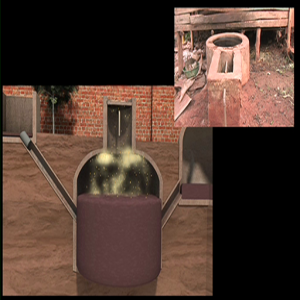
Monday Apr 13, 2020
SLM05 Zero-grazing & biogas (Summary)
Monday Apr 13, 2020
Monday Apr 13, 2020
Zero-grazing is where fodder is cut and carried to cows which are kept in stalls. It is suited to where land is scarce. When the manure that the cows produce is mixed with water it can provide the fuel for a bio-gas plant. The mix of methane and carbon dioxide can be used for cooking or lighting and the semi-solid residue makes good fertilizer.
Download the full audio podcast in different languages at: www.AccessAgriculture.org
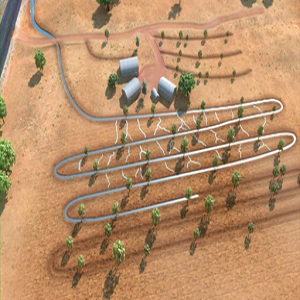
Wednesday Apr 08, 2020
SLM04 Road runoff harvesting (Summary)
Wednesday Apr 08, 2020
Wednesday Apr 08, 2020
Runoff water from roads can give an extra boost to crops during the rainy season, or if it is stored in ponds can be used for irrigating horticultural crops.
Download the full audio podcast in different languages at: www.AccessAgriculture.org
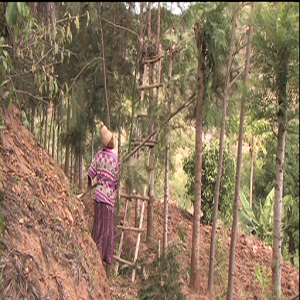
Wednesday Apr 08, 2020
SLM03 Grevillea agroforestry (Summary)
Wednesday Apr 08, 2020
Wednesday Apr 08, 2020
Grevillea robusta was originally introduced as a shade tree in the coffee and tea estates of East Africa. Now small-scale farmers use the tree in many ways as it does not interfere with crop growth. Uses include timber, fuel wood, leaf mulch, shade, and it serves as a windbreak.
Download the full audio podcast in different languages at: www.AccessAgriculture.org
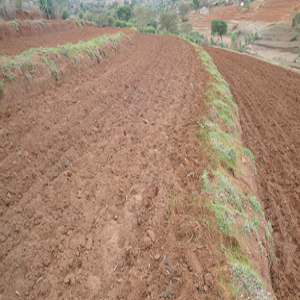
Monday Apr 06, 2020
SLM02 Fanya juu terraces (Summary)
Monday Apr 06, 2020
Monday Apr 06, 2020
Fanya juu means "throw the soil up" in Kiswahili. The terraces formed are ideal for fodder grasses and help prevent soil erosion. Cultivation becomes easier as the terraces spread out to make the land more level and when combined with manure/fertilizer yields increase.
Download the full audio podcast in different languages at: www.AccessAgriculture.org
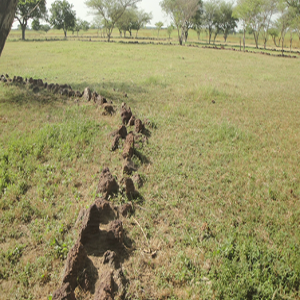
Monday Apr 06, 2020
SLM01 Stone Lines (Summary)
Monday Apr 06, 2020
Monday Apr 06, 2020
Stone lines or stone bunds can slow down runoff, increase water infiltration and form the basis for improved production in semi-arid areas. By using the contours of low slopes water harvesting is improved and crops are possible in low rainfall years.
Download the full audio podcast in different languages at: www.AccessAgriculture.org
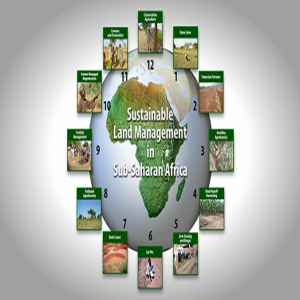
Monday Apr 06, 2020
SLM00 - Introduction (Summary)
Monday Apr 06, 2020
Monday Apr 06, 2020
Introduction to Sustainable Land Management (SLM) practices which have a proven track record in Africa. They can help control land degradation and improve production for small scale farmers, despite the challenges of climate change.
Download the full audio podcast in different languages at: www.AccessAgriculture.org
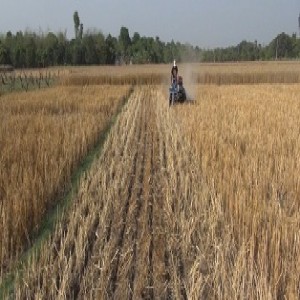
Monday Apr 06, 2020
Strip tillage (Summary)
Monday Apr 06, 2020
Monday Apr 06, 2020
Strip tillage keeps crop stubble and helps to conserve soil moisture by tilling only those parts of the fields where the seed and fertiliser is placed. By using a two-wheel tractor with a specially designed attachment box, the seed and fertiliser are placed in the soil at the same time as tilling.
Download the full audio podcast in different languages at: www.AccessAgriculture.org
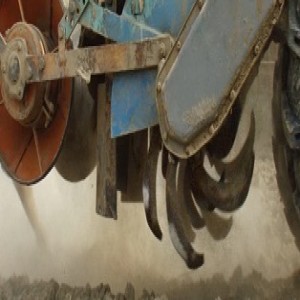
Monday Apr 06, 2020
Bed planting (Summary)
Monday Apr 06, 2020
Monday Apr 06, 2020
With bed planting, rapidly rotating blades first till the soil. The soil is then reshaped into long beds that alternate with furrows. This technique significantly reduces the amount of water needed for irrigating wheat and is increasingly applied throughout South Asia.
Note: This podcast contains some content referring to mineral fertilizer and pesticides
Download the full audio podcast in different languages at: www.AccessAgriculture.org

Wednesday Mar 18, 2020
Women in extension (Summary)
Wednesday Mar 18, 2020
Wednesday Mar 18, 2020
Food production in women’s fields could easily increase by 30% if we paid attention to gender when dealing with these four areas: demand for training and advice; extension methods and content; access to land, inputs and credit; and access to markets. This video targets research and development organisations, as well as agricultural service providers.
Download the full audio podcast in different languages at: www.AccessAgriculture.org
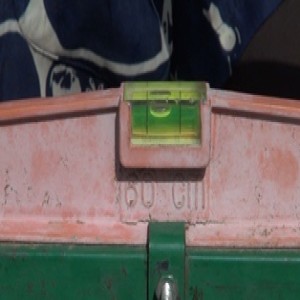
Wednesday Mar 18, 2020
Contour bunds (Summary)
Wednesday Mar 18, 2020
Wednesday Mar 18, 2020
In the semi-arid savannas where rainfall is limited and highly unpredictable, retaining more water in the soil can make the difference between a poor and a good harvest. You can slow down the runoff water by establishing contour bunds. Contour bunds are permanent ridges of earth that follow positions located at the same altitude. For over 20 years, farmers in Burkina Faso and Mali have made contour bunds in their fields on rolling land with less than a 5% slope.
Download the full audio podcast in different languages at: www.AccessAgriculture.org
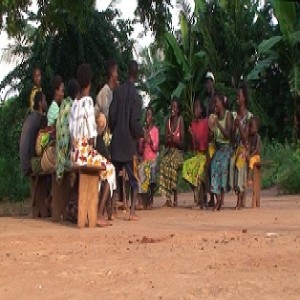
Wednesday Mar 18, 2020
Reviving soils with mucuna (Summary)
Wednesday Mar 18, 2020
Wednesday Mar 18, 2020
In the coastal savanna of West Africa, farmers explain how a mucuna cover crop helped to revive their highly degraded soil, and suppress the noxious weeds Striga and Imperata. They show how to grow it to benefit your maize and cassava, and why discussing land tenure in your community really matters.
Download the full audio podcast in different languages at: www.AccessAgriculture.org
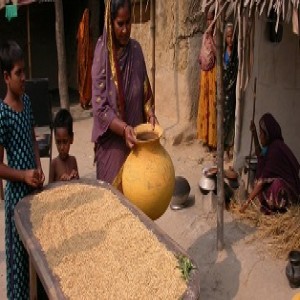
Friday Mar 13, 2020
Well dried seed is good seed (Summary)
Friday Mar 13, 2020
Friday Mar 13, 2020
Farmers face great difficulties with drying their seeds because seed absorbs moisture from the soil. As a result, seed quality deteriorates, and no-one can expect good yields by using poor quality seed. In this video you can see how farmers of Maria village solved this problem. Now they are no longer worried about drying seed, even during the rainy season.
Download the full audio podcast in different languages at: www.AccessAgriculture.org
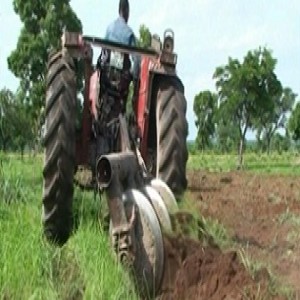
Friday Mar 13, 2020
Vision becomes reality (Summary)
Friday Mar 13, 2020
Friday Mar 13, 2020
A youth association in Northern Ghana shows how self-determination and commitment backed by appropriate financial and business development services has helped members to generate additional income and sustain their group.
Download the full audio podcast in different languages at: www.AccessAgriculture.org
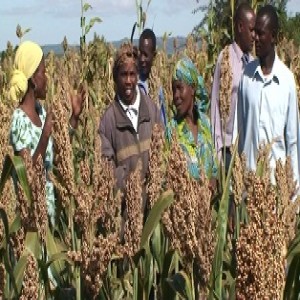
Friday Mar 13, 2020
Succeed with seeds (Summary)
Friday Mar 13, 2020
Friday Mar 13, 2020
During weekly visits, and supported by their extension agent, a farmer field school in Tanzania learns how to test different sorghum varieties for striga resistance and evaluate how each one performs under different practices.
Download the full audio podcast in different languages at: www.AccessAgriculture.org
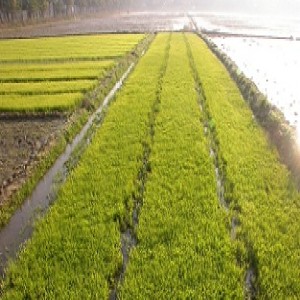
Friday Mar 13, 2020
The rice seedbed (Summary)
Friday Mar 13, 2020
Friday Mar 13, 2020
In this audio podcast, you can learn how to prepare a seedbed, as establishing a good seedbed is needed to obtain strong seedlings and give your rice crop a good start. Let’s look at it step by step.
Download the full audio podcast in different languages at: www.AccessAgriculture.org
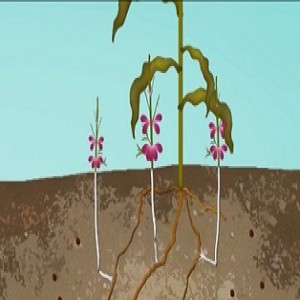
Friday Mar 13, 2020
Striga biology (Summary)
Friday Mar 13, 2020
Friday Mar 13, 2020
One of the major parasites is striga, a weed that sucks the juice and nutrients from cereal crops such as millet, sorghum and maize and causes great yield losses. A single striga plant can produce hundreds of thousands of seeds. The seeds are so tiny that most farmers do not know they are seeds. They really look more like black dust. But don’t be fooled.
Download the full audio podcast in different languages at: www.AccessAgriculture.org
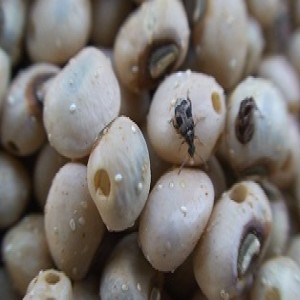
Friday Mar 13, 2020
Storing cowpea seed (Summary)
Friday Mar 13, 2020
Friday Mar 13, 2020
Intercropping or rotating cereal crops with legume crops are two of the strategies of integrated striga and soil fertility management. But keeping quality legume seed has two major challenges. First, the seed easily loses its ability to germinate. And second, we are not the only ones who love legumes. Let’s listen to some farmers from northern Ghana.
Download the full audio podcast in different languages at: www.AccessAgriculture.org
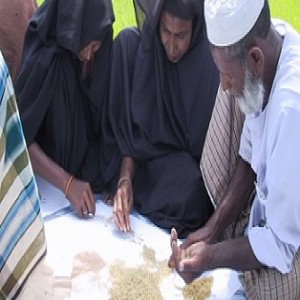
Friday Mar 13, 2020
Spotted Seed - Diseased Seed (Summary)
Friday Mar 13, 2020
Friday Mar 13, 2020
There are many problems with poor seed, and spotted and discoloured seed are some of the major ones. Spotted seeds can't be removed by winnowing or seed flotation. They can only be removed by manual sorting. This video will show you how to clean seed as one of the interventions to produce and use healthy seed.
Download the full audio podcast in different languages at: www.AccessAgriculture.org
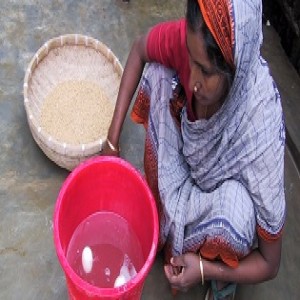
Friday Mar 13, 2020
Seed sorting by flotation (Summary)
Friday Mar 13, 2020
Friday Mar 13, 2020
Why not try the technique of seed flotation before sowing your seed. By using this technique any poor seeds which have been attacked by insects will float to the top, leaving the good seed on the bottom.
Download the full audio podcast in different languages at: www.AccessAgriculture.org
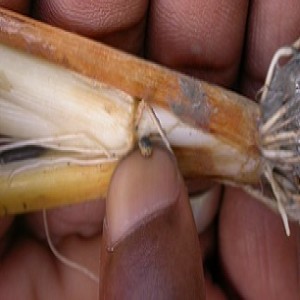
Friday Mar 13, 2020
Rice transplanting (Summary)
Friday Mar 13, 2020
Friday Mar 13, 2020
Yields are much higher when rice is transplanted. Compared to broadcasting, yields are two or three times higher. So why not watch this video and find out how and why.
Download the full audio podcast in different languages at: www.AccessAgriculture.org
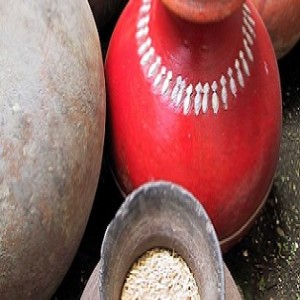
Friday Mar 13, 2020
Rice seed preservation (Summary)
Friday Mar 13, 2020
Friday Mar 13, 2020
Based on hard real-life experience, the women of Maria village have devised some very effective techniques for seed preservation. So why not learn from some of these innovative women.
Download the full audio podcast in different languages at: www.AccessAgriculture.org
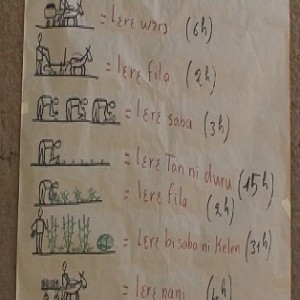
Friday Mar 13, 2020
Let’s talk money (Summary)
Friday Mar 13, 2020
Friday Mar 13, 2020
The economic analysis allows farmers to know how much money they earn or how much they will lose by changing from one technology to another, or from one practice to another. This helps them make a decision for the following year as to which practice they want to try out in their own fields.
Download the full audio podcast in different languages at: www.AccessAgriculture.org
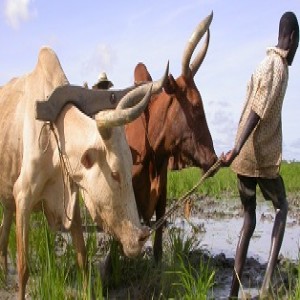
Friday Mar 13, 2020
Land preparation for rice (Summary)
Friday Mar 13, 2020
Friday Mar 13, 2020
How do land preparation and water management affect crop establishment, weed management and rice yields? And why does a field need to be perfectly levelled to make best use of fertilizers? In this audio podcast you can learn the answers to these and other questions.
Download the full audio podcast in different languages at: www.AccessAgriculture.org
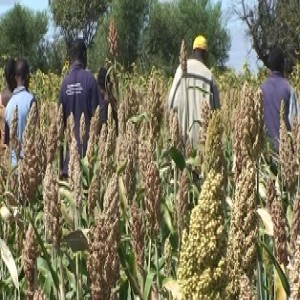
Friday Mar 13, 2020
Joining hands against striga (Summary)
Friday Mar 13, 2020
Friday Mar 13, 2020
It is important to pull striga weeds with your hands before the time it produces seeds and spreads. As it is laborious, better reduce the number of striga plants by applying compost or manure, and by rotating or intercropping with non-cereal crops, such as cowpea. In combination with these practices, hand pulling becomes less laborious. Farmers in Tanzania and Mali join hands to reduce the drudgery of hand pulling. Their community effort also helps them avoid spreading striga seeds to neighbouring fields.
Download the full audio podcast in different languages at: www.AccessAgriculture.org
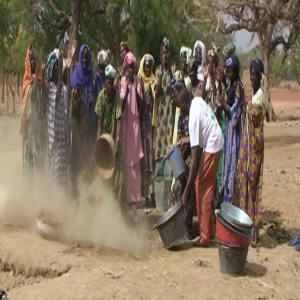
Thursday Mar 12, 2020
Integrated approach against fruit flies (Summary)
Thursday Mar 12, 2020
Thursday Mar 12, 2020
Fruit flies inject their eggs in fruit. A single fruit fly can lay hundreds of eggs, which turn into white worms that eat the inside of fruit. If no action is taken, fruit flies quickly increase in numbers and can destroy your entire crop. Always combine different methods: • Place traps; • Use food baits; • Encourage weaver ants; and • Collect and destroy any fallen fruit.
Download the full audio podcast in different languages at: www.AccessAgriculture.org
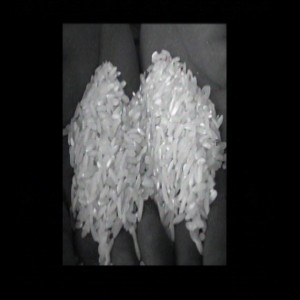
Thursday Mar 12, 2020
Improving Rice Quality (Summary)
Thursday Mar 12, 2020
Thursday Mar 12, 2020
What steps can be taken to make sure that locally grown rice can compete against imports? Improving quality which can lead to increased profits for farmers.
Download the full audio podcast in different languages at: www.AccessAgriculture.org
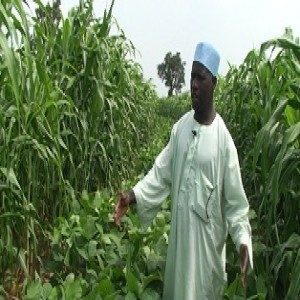
Thursday Mar 12, 2020
Grow row by row (Summary)
Thursday Mar 12, 2020
Thursday Mar 12, 2020
Farmers in northern Nigeria are changing the way they intercrop their sorghum and millet with cowpea. By planting both crops at higher densities and in separate rows, and by applying some organic and mineral fertilizer, they harvest more and reduce damage by the parasitic weed striga. It is one of the strategies of integrated striga and soil fertility management.
Download the full audio podcast in different languages at: www.AccessAgriculture.org
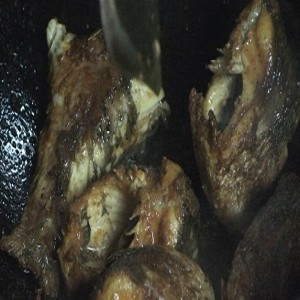
Thursday Mar 12, 2020
Food for fish (Summary)
Thursday Mar 12, 2020
Thursday Mar 12, 2020
What is plankton, and why does it matter to stimulate plankton growth? Experienced farmers in Bangladesh explain how they manage water quality in ponds, and why supplementary feeding is crucial to boost fish production.
Download the full audio podcast in different languages at: www.AccessAgriculture.org
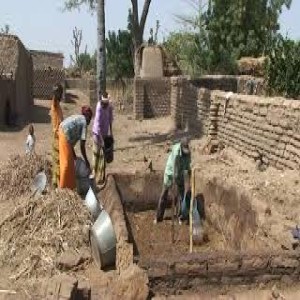
Wednesday Feb 12, 2020
Composting to beat striga (Summary)
Wednesday Feb 12, 2020
Wednesday Feb 12, 2020
Compost is more powerful than manure. What is less known is that the micro-organisms in compost attack striga seeds in the soil. Compost also decreases the amount of striga that will sprout, and reduces its negative effect on cereal crops. Let us look at how farmers in northeast Mali make compost as one of the strategies of integrated striga and soil fertility management.
Download the full audio podcast in different languages at : www.AccessAgriculture.org
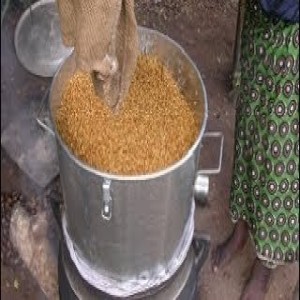
Wednesday Feb 12, 2020
Cashing in with parboiled rice (Summary)
Wednesday Feb 12, 2020
Wednesday Feb 12, 2020
Although rice is highly nutritious, a lot of the quality is lost during processing. This results in poor-quality rice on the market, so consumers turn to imported rice. Parboiling, a way to improve the quality of rice by treating the paddy with warm water and steam. There are many good reasons for parboiling rice. The market for quality rice is growing.
Download the full audio podcast in different languages at : www.AccessAgriculture.org
